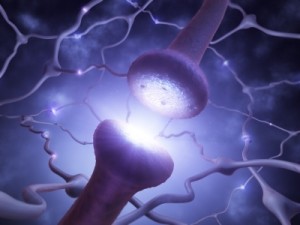A recent study found a relationship between cocaine addiction and dopamine receptors. According to the National Institute on Drug Abuse (NIDA), the study suggests that people with naturally low levels of dopamine in the brain (or lower receptor availability), possibly due to genetics, are more susceptible to the rewarding effects of cocaine. Thus, making them more prone to cocaine addiction and relapse.
 Dopamine receptors play an important role in the brain’s primary reward system. They exist in the outer membrane of brain cells and control motivation, emotion, thought, movement, and more. The dopamine receptors protein allows for the neurotransmitter dopamine to attach to these cells and affect their activity. The majority of the time, dopamine molecules occupy some of these dopamine receptors, while the rest of the receptors remain unoccupied and available until a stimulus (like drug use) increases the level of dopamine. When this increase occurs, the empty receptors help “mop up” the excess dopamine.
Dopamine receptors play an important role in the brain’s primary reward system. They exist in the outer membrane of brain cells and control motivation, emotion, thought, movement, and more. The dopamine receptors protein allows for the neurotransmitter dopamine to attach to these cells and affect their activity. The majority of the time, dopamine molecules occupy some of these dopamine receptors, while the rest of the receptors remain unoccupied and available until a stimulus (like drug use) increases the level of dopamine. When this increase occurs, the empty receptors help “mop up” the excess dopamine.
“Predisposition seems to play a role in addiction, as does the dopamine system’s rapid and robust reduction in dopamine receptor availability in response to cocaine,” said Dr. Nader, who believes that lower dopamine receptor availability could be a precursor of cocaine addiction and other addictions to drugs.
The study, as presented by NIDA, observed the dopamine receptors of rhesus monkeys before, during and after cocaine use. PET scans were used to reveal the level of dopamine receptors availability prior to initial cocaine exposure. The study found that the monkeys with lower dopamine receptors availability self-administered cocaine at higher rates. Therefore, it suggests that lower dopamine receptors availability increases sensitivity to the rewarding effects of cocaine. There was also a rapid decrease in the level of available dopamine receptors after continuous cocaine use in the monkeys. Which means cocaine addiction could be the cause and effect of damaged dopamine receptors.
Similar human studies have also concluded reduced levels of dopamine receptors availability among cocaine abusers, as well as heroin, nicotine, amphetamine, alcohol, and even the severely obese. However, the human studies could not confirm pre-existing proportions of dopamine receptors availability prior to drug use.
Dr. Nader’s next research will examine the likelihood of relapse between the monkeys whose levels of dopamine receptors availability remain low while abstaining and those whose dopamine receptors recover after discontinuing the use of cocaine.



Thank you for this interesting posting about a most destructive addiction.